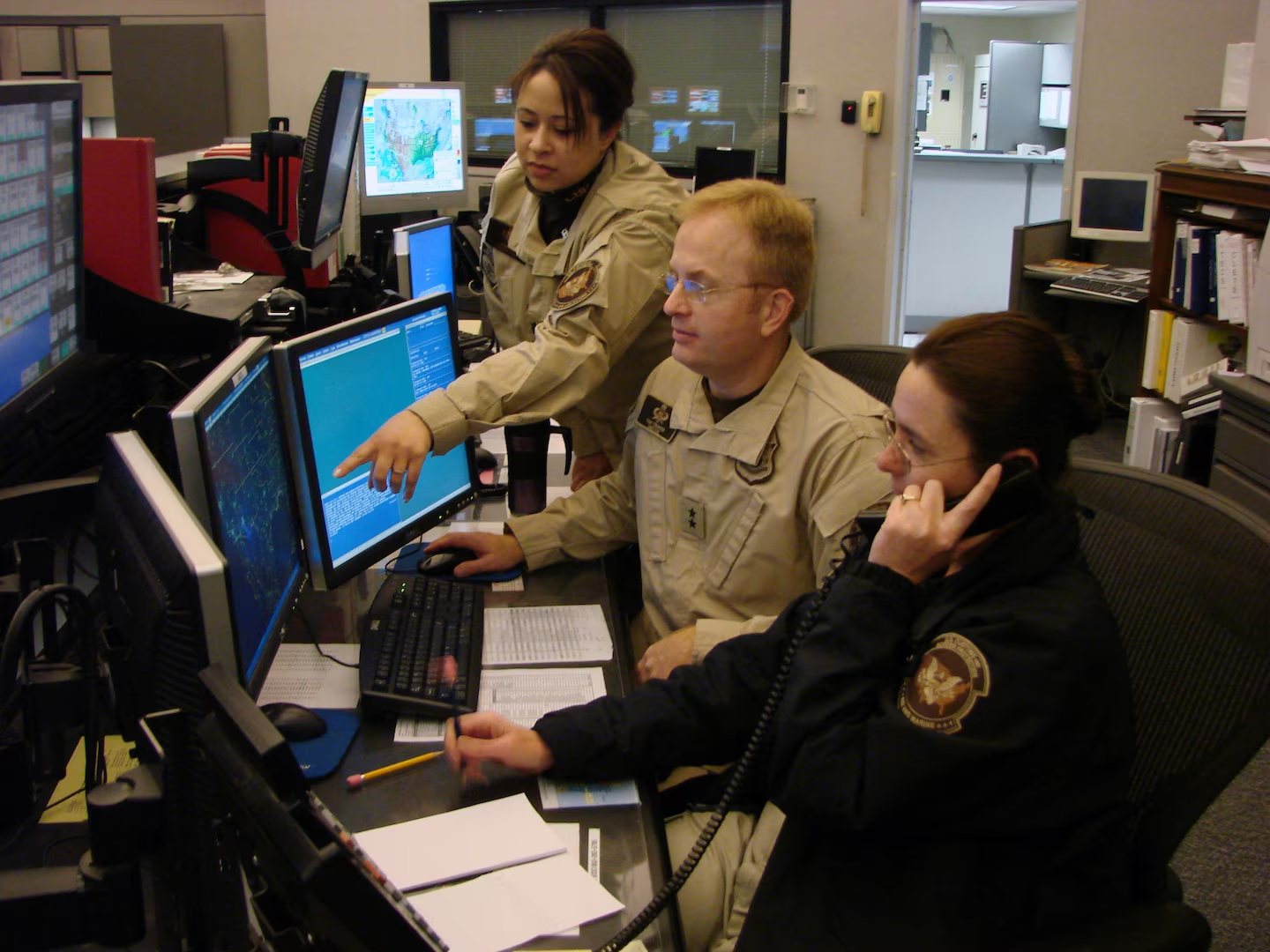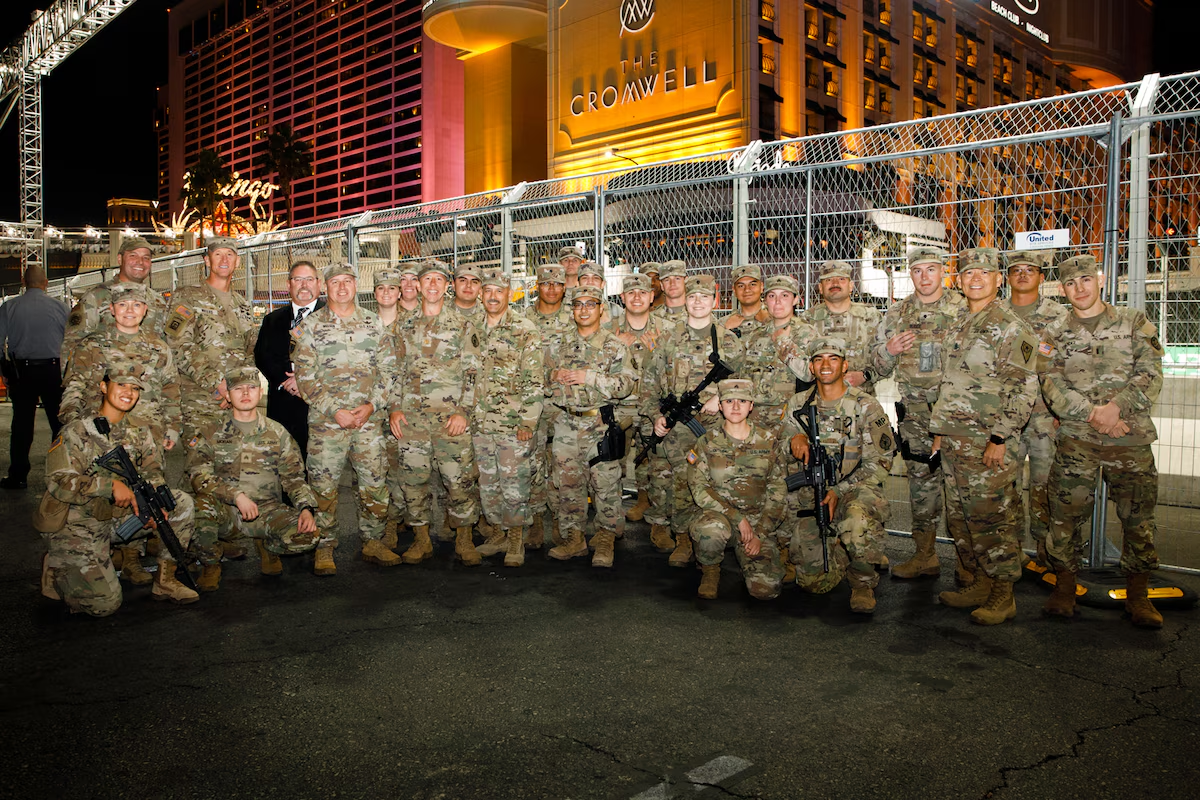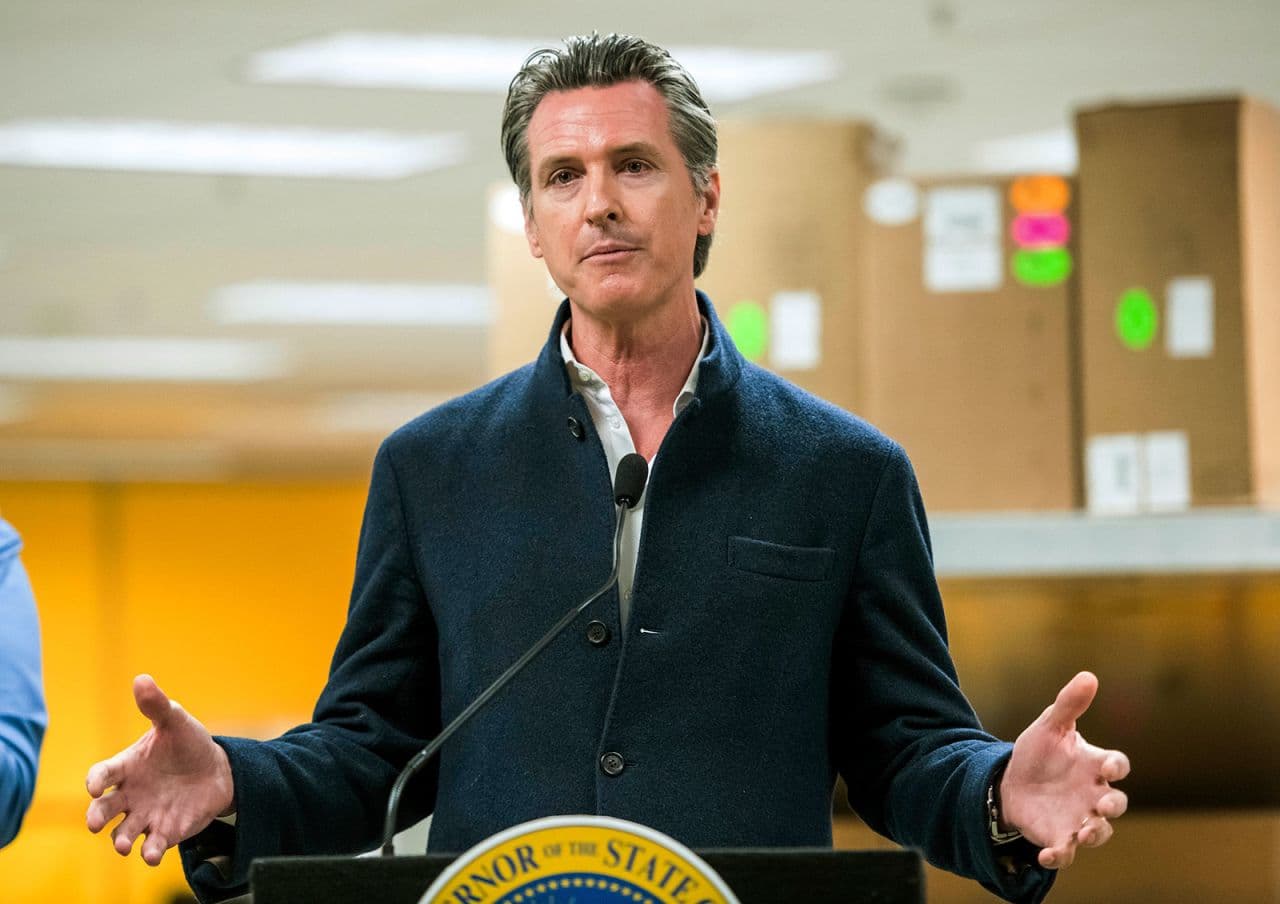Dozens of Marines are now stationed in the California border region, marking a drastic shift in U.S. military involvement in immigration enforcement. This deployment, described by California Governor Gavin Newsom as "mission creep," reflects a disturbing trend toward militarization that places vulnerable communities at even greater risk.
Military Presence Escalates at the Border
The deployment of Marines in Campo, California is emblematic of a broader strategy by the Trump administration to use military resources in domestic law enforcement. Traditionally, the military"s role has been limited to support functions, adhering to the Posse Comitatus Act of 1878, which prohibits active-duty military involvement in civilian law enforcement. However, this latest shift signals a potential erosion of those boundaries, reflecting an administration increasingly willing to blur the lines between military and civilian roles.
Troops Engaged in Border Patrol
According to reports from CalMatters, Marines are actively patrolling the border area twice daily. This represents a significant change from their previous support-only role, and raises critical questions about the nature of their engagement with individuals attempting to cross the border. Kevin Johnson, a law professor at UC Davis, has articulated concerns about the lack of clarity surrounding the instructions given to the Marines, stating, "It’s not clear to me what instructions the Marines are being given with respect to engagement with people who are attempting to cross the border."
Fear and Uncertainty for Migrants
The implications of increased military presence are dire for migrant communities. As reported by The New York Times, the militarization of the border has historically correlated with rising migrant deaths, as individuals are forced to take more dangerous routes to avoid detection. The fear that military personnel may engage in aggressive enforcement actions only exacerbates the already precarious situation faced by those fleeing violence and poverty.
Legal and Ethical Ramifications
The militarization of the border raises significant legal and ethical concerns. The recent designation of a 60-foot-wide strip of federal land as a "military installation" raises alarms about the potential for bypassing the Posse Comitatus Act, which is designed to protect civilian populations from military enforcement. Experts warn that the combination of armed forces and vulnerable migrants could lead to tragic outcomes. As Johnson noted, "It’s like a ticking time bomb. I hate to say it this way, but it’s only a matter of time until we see something bad happen."

U.S. Customs & Border Protection AMOC director visits 1AF ...
California"s Response to Federal Overreach
Governor Newsom’s administration has not stood idly by. The governor has vocally opposed the federalization of the National Guard and the deployment of Marines, calling it "an unmistakable step toward authoritarianism." His administration has initiated legal action against the federal government, arguing that these actions are not about security but rather about instilling fear within communities. Diana Crofts-Pelayo, a spokesperson for Newsom, emphasized the dangers of this military presence, asserting, "This is not just mission creep—it’s putting law enforcement, our soldiers, and the community in danger." The implications of this escalating conflict between state and federal authorities are significant, as they reflect broader tensions over immigration policy and civil rights.
Public Health Concerns Arise
The public health implications of this militarization cannot be overstated. As an epidemiologist, I understand that marginalized communities are disproportionately affected by policies that criminalize migration. The presence of armed military personnel at the border may deter individuals from seeking necessary medical care or accessing resources, exacerbating existing health disparities. The ongoing pandemic has already highlighted the vulnerabilities faced by immigrant populations, and this increased militarization only serves to compound those issues.
The Road Ahead for Immigration Policy
As the situation unfolds, it is imperative to advocate for humane immigration policies that prioritize the well-being of individuals and communities. The deployment of military personnel at the border is not only a violation of ethical standards but also a threat to public health and safety. It is essential for advocates, lawmakers, and community organizations to unite in opposition to this militarization and to push for reforms that respect human rights and dignity. The fight for equitable immigration policy must continue, as we cannot afford to let fear dictate our approach to those seeking safety and a better life.

Breaking news coverage: campo california military deployment

![[Video] Federal officers deploy sting balls and flash grenades at Whipple Building](/_next/image?url=%2Fapi%2Fimage%2Fthumbnails%2Fthumbnail-1768340555229-vhfcc-thumbnail.jpg&w=3840&q=75)
![[Video] Crowd-control weapons used in Minneapolis as anti-ICE protesters attack police vehicle](/_next/image?url=%2Fapi%2Fimage%2Fthumbnails%2Fthumbnail-1768336302231-akxf7s-thumbnail.jpg&w=3840&q=75)

![[Video] Protests erupt in Minneapolis after ICE detains teenager, multiple arrests made](/_next/image?url=%2Fapi%2Fimage%2Fthumbnails%2Fthumbnail-1768331835371-z9ylqg-thumbnail.jpg&w=3840&q=75)


![[Video] Gunfire between Iraqi security forces and Sadr militias in Baghdad](/_next/image?url=%2Fapi%2Fimage%2Fthumbnails%2Fthumbnail-1768343508874-4redb-thumbnail.jpg&w=3840&q=75)
